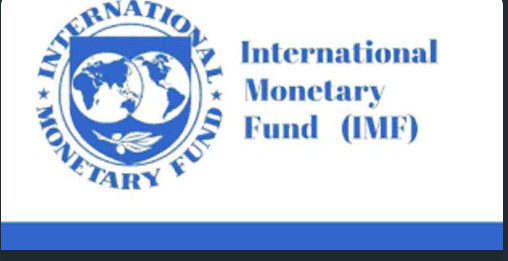International Monetary Fund (IMF), has advised the Nigerian government to ask global crypto trading platforms to register or obtain licences before operating in the country.
IMF made this recommendation in it’s latest staff report following the conclusion of its 2024 Article IV consultation with Nigeria.
According to the report, compelling global crypto trading platforms to register will subject them to regulatory requirements.
The IMF emphasized the need for Nigeria to establish a robust regulatory framework to oversee the growing cryptocurrency market, ensuring financial stability and protecting investors.
It added that the move aligns with global efforts to standardise cryptocurrency regulations and prevent illicit activities.
“Global crypto trading platforms should be registered or licensed in Nigeria and subject to the same regulatory requirements applicable to financial intermediaries following the principle of the same activity, same risk, and same regulation,” the report highlighted.
The IMF also noted that Nigerian authorities took significant steps early in the year to address issues surrounding cryptocurrency trading platforms.
The report read, “The authorities agreed with the importance of maintaining external stability and emphasized that the reforms that they have implemented as well as efforts to bring in FX liquidity, including the requirement for international oil companies to hold 50 per cent of repatriated oil receipts in Nigeria for 90 days, are geared towards that end.
“They see pressure on the exchange rate now coming from illicit flows, including through crypto-asset platforms, and not being driven by fundamentals, noting that some ceilings on FX access are intended to curb abuse.”
In February, the Central Bank of Nigeria expressed concerns about the large volume of transactions passing through crypto exchange platforms from unidentified sources, stating that it is working with other government agencies to address these illicit financial activities. The bank claimed that in the last year, $26bn passed through Binance Nigeria from unidentified sources.
As a result, in the last three months, cryptocurrency trading platforms have come under scrutiny on the suspicion that they were manipulating the local currency’s value in the foreign exchange market.
On Monday, the Director General of the Securities and Exchange Commission, Emomotimi Agama, said delisting the naira from P2P platforms was necessary to avoid the level of manipulation currently happening.
Given the above, the Central Bank of Nigeria had directed fintech companies operating in the country to block the accounts of customers engaging in cryptocurrency transactions and to report those transactions to law enforcement agencies.
Further, the IMF also warned that the rapid growth of foreign exchange trading platforms in Nigeria poses new challenges to the country’s financial stability.


























![#Edodecides2024: Obaseki calls for calm, hints at legal action [VIDEO]](https://thediscovererng.com/wp-content/uploads/2024/09/download-6-3-120x86.jpeg)

